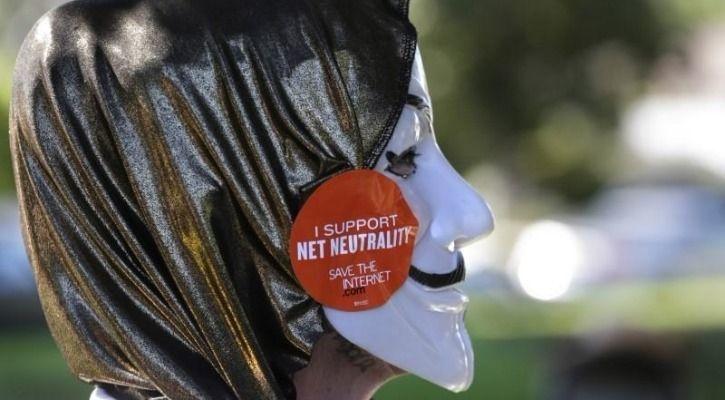Sites and VPNs Are Being Blocked By Indian Government To Control Public Opinions
Indira Datta - Mar 18, 2019

Indian government and telecommunication companies tightly control websites and VPNs to keep unwanted public opinions from spreading
- Airtel Will Cover COVID-19 Vaccination Costs For Its Employees And Their Families
- Airtel Has Successfully Trialed 5G Network In Hyderabad
- Vodafone Customer Care Number: List Of Working Numbers (Updated)
Web sites and VPNs sometimes become a vast government concern when they are ready to block and ban them when they see any content that is inconsistent with their culture or different from their opinions. Not only pornographic websites but also websites that frequently appear different opinions around the world are often overlooked and prevented. During the past time, the Indian government has issued many bans for online sites to eliminate threats to their society.

In 2015, the Indian government was determined to remove pornographic sites so as not to affect children's minds and behaviors. However, the ban has not been implemented thoroughly and gradually becomes blurred after a long time. And in December 2018, the ban on pornographic sites was applied back to a stricter one. The reason for the ban on these sites is the increasing sexual violence in the region and the government's assumption that removing pornography online will help reduce this adverse problem.

Overall, this is an understandable reason to ban pornographic websites, but are other government bans convincing?
There are quite some certain websites that work offline continuously and actively in India. They are just a few websites that cross the barriers of some telecommunications companies. According to reports sent by 135 users, the people at Freedom House have to embark on these issues. Although they come from different locations, it is sure that some of them will be overlapping entries. What we need to know is that many ISPs now block quite a few websites.
We also know that pornographic websites are at the top of the Indian government's list of blocked and removed sites. Besides, torrent sites are also in the ban because it is almost illegal in many countries. So we are not going to consider those in here.
It is pretty unfair when Streamable or Mega is still allowed to operate widely. These sites allow users to share files and videos that infringe copyright but do not have any condemnation. Meanwhile, Soundcloud is on the list of users reporting violations because of free Indie music for everyone. A website that publishes humorous and meaningless content like College Humor is blocked for users to access. Telegram is merely an encrypted messaging website that is also listed as illegal.
One thing to be clear is that in this report list there are 60% coming from Reliance Jio users, nearly 30% from Airtel and some from Vodafone. Perhaps everyone knows it will be illegal for telecommunications companies to take biased actions when delivering online content through their connections. But this is happening quietly, whether these actions are government orders?

This has not been clarified yet because the Department of Telecom does not publish details of the orders they have issued.
There are two possible cases, in this case, it is possible that telecommunications companies are blatantly violating neutrality in online service provision or it is possible that the government has issued more bans than what they told us.
The Indian government has settled 292 times shutdowns of the large-scale Internet since 2012 to manage these behaviors. Most of those include riots, protests, and other similar activities. Moreover, this trend is currently increasing when there were 134 shutdowns last year. And in the first three months of 2019, there were 20 Internet shutdowns.
For the government, it seems that turning off the entire Internet is considered a safety measure to avoid widespread violence. However, what they put more emphasis on in this action is to make the public's anger settle down and not spread widely. The Internet is the most powerful tool that makes ideas against the government spread to citizens across the country. Therefore, the Indian government is active in turning off the Internet to control information and a large number of people.

We can see how North Korea, Russia, and China control online content in their area. The governments of these countries control the Internet as tightly as controlling content published in newspapers and television stations. Currently, DoT's claims are still unclear, so we cannot know who is responsible in this case.
Featured Stories

Features - Jan 29, 2026
Permanently Deleting Your Instagram Account: A Complete Step-by-Step Tutorial

Features - Jul 01, 2025
What Are The Fastest Passenger Vehicles Ever Created?

Features - Jun 25, 2025
Japan Hydrogen Breakthrough: Scientists Crack the Clean Energy Code with...

ICT News - Jun 25, 2025
AI Intimidation Tactics: CEOs Turn Flawed Technology Into Employee Fear Machine

Review - Jun 25, 2025
Windows 11 Problems: Is Microsoft's "Best" OS Actually Getting Worse?

Features - Jun 22, 2025
Telegram Founder Pavel Durov Plans to Split $14 Billion Fortune Among 106 Children

ICT News - Jun 22, 2025
Neuralink Telepathy Chip Enables Quadriplegic Rob Greiner to Control Games with...

Features - Jun 21, 2025
This Over $100 Bottle Has Nothing But Fresh Air Inside

Features - Jun 18, 2025
Best Mobile VPN Apps for Gaming 2025: Complete Guide

Features - Jun 18, 2025
A Math Formula Tells Us How Long Everything Will Live
Read more

ICT News- Feb 18, 2026
Google's Project Toscana: Elevating Pixel Face Unlock to Rival Apple's Face ID
As the smartphone landscape evolves, Google's push toward superior face unlock technology underscores its ambition to close the gap with Apple in user security and convenience.

ICT News- Feb 19, 2026
Escalating Costs for NVIDIA RTX 50 Series GPUs: RTX 5090 Tops $5,000, RTX 5060 Ti Closes in on RTX 5070 Pricing
As the RTX 50 series continues to push boundaries in gaming and AI, these price trends raise questions about accessibility for average gamers.

ICT News- Feb 20, 2026
Tech Leaders Question AI Agents' Value: Human Labor Remains More Affordable
In a recent episode of the All-In podcast, prominent tech investors and entrepreneurs expressed skepticism about the immediate practicality of deploying AI agents in business operations.
Comments
Sort by Newest | Popular